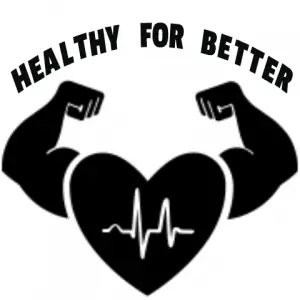Ever thought about working out before breakfast to boost your fitness? Lifting weights on an empty stomach, or fasted weightlifting, is a topic of debate. It means doing strength training after not eating for at least four to six hours. This way, your body uses stored fat for energy.
It's not just about skipping breakfast. This method changes how your body uses energy. Exercising when you're not eating may make your body burn fat instead of glycogen. But is it good for everyone?
Fasted weightlifting might improve insulin sensitivity and growth hormone levels. Sounds good, right? But it could also make you tire faster and perform worse. The question is, are the benefits worth the risks for your fitness goals?
Key Takeaways
- Fasted weight training occurs 4-6 hours after eating
- It may increase fat burning and insulin sensitivity
- Potential drawbacks include decreased performance and muscle breakdown
- The intensity of exercise affects energy source usage
- Pre-workout nutrition timing can impact workout effectiveness
- Individual goals and body responses should guide the decision to train fasted
Understanding Fasted Weight Training Basics
Fasted weightlifting is popular among those who work out and build muscle. It means exercising when your stomach is empty, usually after not eating for a while. Let's explore what this training method is all about.
What Defines a Fasted State
A fasted state happens when your body has digested and absorbed your last meal. This is usually 4-6 hours after you eat. At this time, your body starts using fat for energy instead of glucose.
How Your Body Uses Energy During Fasting
Fasting changes how your body uses energy and hormones. Insulin goes down, and glucagon goes up. This makes your body use fat for fuel. This change is why some people like fasting for workouts.
The Role of Glycogen in Fasted Training
Glycogen is important in fasted training. It's stored in muscles and liver. When glycogen runs out during a workout, your body uses fat for energy. This is key to the benefits of fasting in bodybuilding.
| Fasted State | Fed State |
|---|---|
| Lower insulin levels | Higher insulin levels |
| Increased fat oxidation | Primarily glucose utilization |
| Potential muscle protein breakdown | Enhanced muscle protein synthesis |
Fasted weightlifting has its benefits. But, it's important to think about your own needs and goals before trying it.
The Science Behind Lifting Weight on Empty Stomach
Fasted weightlifting is getting more attention for its benefits in burning fat and building muscle. Studies show it affects how our body uses energy and performs.
A study found that exercising on an empty stomach boosts fat burning by 70% during a 30-minute bike ride. People burned 7.7g of fat compared to 4.5g when they ate first. This shows fasted weightlifting might help burn more fat.

When it comes to weight training, when you eat matters a lot. The same study showed that those who fasted covered less distance in a 15-minute trial. They also felt less motivated and enjoyed it less than those who ate two hours before.
“Exercising in the ‘fat-burning zone' may burn more fat during exercise, but overall fat loss is similar to training at higher intensities.”
Even though fasted training might use more fat during exercise, it doesn't really help with long-term fat loss. The real secret to losing fat is to eat less and move more over time.
| Exercise State | Fat Burned (30-min) | Daily Calorie Intake | Exercise Performance |
|---|---|---|---|
| Fasted | 7.7g | 440 kcal less | Slightly decreased |
| Fed | 4.5g | Baseline | Normal |
Strength training, whether you're fasting or not, has small effects on fat loss. High-intensity workouts might help keep and grow muscle better than low-intensity ones for losing fat.
Benefits of Training While Fasted
Lifting weights on an empty stomach has many benefits for those who work out. It's a favorite among those who follow intermittent fasting for bodybuilding. Let's look at the main advantages of training on an empty stomach.
Enhanced Fat Oxidation
Training on an empty stomach can increase fat burning. Research shows it can raise fat oxidation by up to 20%. This is great for losing weight while keeping muscle.
Improved Insulin Sensitivity
Training on an empty stomach can also improve how your body handles insulin. This helps control blood sugar levels better. It lowers the risk of insulin resistance and boosts metabolic health.
Increased Growth Hormone Production
Fasting and exercise can greatly increase growth hormone levels. Studies found that fasting for just two days can raise growth hormone by 5 times. This helps with muscle growth and fat loss, important in bodybuilding.
While these benefits are exciting, remember that everyone reacts differently. Some might feel less energetic or perform worse when training on an empty stomach. It's important to listen to your body and adjust your workout plan as needed.
| Benefit | Percentage Increase |
|---|---|
| Fat Oxidation | Up to 20% |
| Growth Hormone Production | 500% (5-fold) |
The best fasting time for these benefits is usually 16 to 18 hours. Always talk to a healthcare professional before starting any new workout plan, especially if it involves fasting and intense exercise.
Potential Risks and Drawbacks
Lifting weights on an empty stomach, known as empty stomach strength training, has its risks. Some people believe in the benefits of skipping breakfast weightlifting. But, it's important to know the possible downsides.

Muscle Protein Breakdown
One big worry with catabolic state lifting is muscle protein breakdown. Exercising without eating first might make your body use muscle for energy. This could erase the muscle you've worked so hard to build, especially during long or tough workouts.
Decreased Performance Capacity
Fasted training can also lower your performance. Without enough fuel, you can't do your best during workouts. This might mean less strength, endurance, and overall quality in your exercises. A 2014 study on 20 women showed no real benefits from fasted workouts, suggesting that eating before working out is key for the best results.
Impact on Energy Levels
Working out on an empty stomach can really affect your energy. You might feel tired, lose focus, and even get dizzy. These symptoms can make your workout worse and increase injury risk. It's important to listen to your body and decide if you should do a workout or not.
While fasted training might have its uses, it's vital to consider the risks. For many, eating before working out is safer and more effective for reaching fitness goals.
Optimal Pre-Workout Nutrition Timing
Pre-workout nutrition is key to getting the most out of your workouts. When you eat can greatly affect how well you perform and recover. Try to eat 1-3 hours before your workout for the best results.
If you work out in the morning, you'll need a special plan. A small snack 30-60 minutes before can help. Think about a banana with almond butter or a slice of toast with honey.
For afternoon or evening workouts, here's a guide:
| Time Before Workout | Meal Size | Suggested Foods |
|---|---|---|
| 3-4 hours | Full meal | Chicken, rice, vegetables |
| 1-2 hours | Light meal | Greek yogurt with berries |
| 30-60 minutes | Small snack | Protein shake, banana |
Keep in mind, the best pre-workout meal is different for everyone. Try different times and foods to see what works for you. Also, don't forget to drink plenty of water and listen to your body for the best workout.
Best Foods for Pre-Workout Energy
Getting the right food before working out is key to doing your best. It's important to eat at the right time to fuel your body. Here are some great foods to boost your energy for workouts.
Quick-Energy Carbohydrates
Carbs are your main energy source when you exercise. Choose easy-to-digest carbs like bananas or smoothies. They give your muscles and brain quick energy.
Protein Sources
Protein helps fix and grow muscles. Greek yogurt, cottage cheese, or a protein shake are good choices. They're great for morning workouts.
Balanced Meal Options
For the best nutrition before working out, mix carbs and protein. Try oatmeal with fruit and protein powder or yogurt with berries and granola. These meals give you energy and help your muscles during your workout.
| Food | Benefits | Best for |
|---|---|---|
| Banana | Simple carbs, potassium | Quick energy, muscle function |
| Oatmeal with fruit | Sustained energy, fiber | Longer workouts |
| Fruit smoothie | Fast-acting carbs, hydration | High-intensity training |
| Greek yogurt with berries | Protein, antioxidants | Muscle preservation, recovery |
Everyone is different. Try different foods to see what works best for you and your workout routine.
Morning Training Considerations
Morning weight training comes with its own set of challenges and benefits. Many people choose to train on an empty stomach, hoping it boosts fat burning. But, research has mixed findings on whether fasting during exercise really helps with fat loss.
Some think skipping breakfast before lifting weights is a quick way to get leaner. But, it's not right for everyone. How your body reacts to morning workouts can depend on your age, gender, and how your body works.
For those over 50, the body might prefer morning workouts. A small study showed women who worked out in the morning lost more belly fat and had lower blood pressure than those who worked out at night.
Listen to your body. If you feel energized and focused during fasted morning workouts, stick with it. If not, a light pre-workout snack might be beneficial.
Staying hydrated is key for morning workouts. Drink water as soon as you wake up to replace lost fluids. This simple action can greatly improve your performance and energy during early workouts.
| Time of Day | Potential Benefits | Considerations |
|---|---|---|
| Morning | Fat loss, improved focus | May need pre-workout fuel |
| Evening | Higher muscle strength, better anabolic state | May impact sleep quality |
Consistency is more important than timing. Pick a workout schedule that fits your lifestyle and goals. This ensures you stick with it and make progress in your fitness journey.
Performance Impact on Different Types of Training
Lifting weight on an empty stomach has different effects on exercise. Let's look at how it impacts strength, endurance, and high-intensity training.
Strength Training Effects
Doing strength training on an empty stomach might not be the best for building muscle. Without amino acids, it's hard to keep muscles healthy. Dr. Stacy Sims says fasted training can hurt muscle growth and performance, especially for women.
Endurance Performance
Training on an empty stomach might improve endurance over time. A 2018 study found that eating before training boosts aerobic capacity. Interestingly, fasted training could burn up to 20% more fat and increase VO2max long-term.
High-Intensity Training Results
The effects of lifting on an empty stomach vary for high-intensity workouts. Some people adapt to keep their performance steady, while others see a drop. Fasting with exercise can raise cortisol levels more than eating before training.
| Training Type | Fasted Performance | Fed Performance |
|---|---|---|
| Strength | May impair muscle synthesis | Better for muscle maintenance |
| Endurance | Potential fat burning increase | Improved aerobic capacity |
| High-Intensity | Varies; possible adaptation | Generally better performance |
Fasted weightlifting has benefits for fat burning and endurance. But it might not be the best for strength or high-intensity workouts. Everyone reacts differently, so it's important to listen to your body and adjust your training.
Post-Workout Recovery Strategies
After a fasted weight training session, your body needs proper care. Nutrient timing for weight training plays a key role in recovery. Let's explore some effective post-workout strategies to help you bounce back stronger.
Post-workout nutrition is crucial, especially if you're into intermittent fasting bodybuilding. Aim to eat within 30 minutes to 2 hours after your workout. This helps replenish energy stores and supports muscle repair.
A balanced meal with carbs and protein is ideal. Try these quick options:
- Scrambled eggs on whole-grain toast
- Grilled chicken with green beans
- Fish with mixed veggies and brown rice
For those on the go, consider these snacks:
- Greek yogurt with fruit
- Protein smoothie
- Banana with nut butter
Don't forget to hydrate! Drink water throughout your workout and after. Aim for about 8 ounces every 15 minutes during exercise.
Rest is just as important as food. Get enough sleep to allow your body to recover fully. This helps you adapt to your training and grow stronger.
| Recovery Factor | Recommendation |
|---|---|
| Meal Timing | Within 30 min – 2 hours post-workout |
| Protein Intake | 20-30g high-quality protein |
| Carb Intake | 0.5-0.7g per kg body weight |
| Hydration | 8 oz water every 15 min during workout |
| Sleep | 7-9 hours per night |
By following these strategies, you can maximize your gains and minimize recovery time. Remember, everyone's needs are different. Listen to your body and adjust as needed.
Conclusion
Lifting weights on an empty stomach is a topic of debate in fitness. Research from 2016 found men burned more calories without breakfast. Women, however, saw no big changes. A 2020 study on PubMed showed fasted cardio boosted fat burning in fat tissue.
Strength training on an empty stomach might burn more calories and increase growth hormone. But, it comes with risks. Muscle and Fitness warns of muscle loss and weaker strength without enough nutrients. Expert trainer Ashleigh Gass says fasted weightlifting is possible but not always best for intense workouts.
Deciding to lift weights on an empty stomach depends on your goals and how your body reacts. Some people feel less energetic during workouts. If you do lift on an empty stomach, eat carbs after to help your muscles recover. It's important to listen to your body and adjust your approach as needed.
FAQ
What is fasted weight training?
Fasted weight training means working out on an empty stomach. This usually happens 4-6 hours after eating. It helps burn fat by using stored fat for energy.
How long does it take to enter a fasted state?
It takes 4-6 hours after eating to reach a fasted state. This is when the body has digested and used up the last meal.
What are the potential benefits of lifting weights on an empty stomach?
Benefits include better fat burning, improved insulin use, and more growth hormone. These can help with losing fat and building muscle.
Are there any risks associated with fasted weight training?
Yes, risks include losing muscle, less strength, and lower energy during workouts.
How does fasted training affect strength performance?
Fasted states can hurt strength training. This is because there's less glycogen for explosive moves.
Is it better to eat before morning workouts?
It depends on what you want to achieve. Some do well without eating, while others need a small snack for better performance.
What should I eat after a fasted weight training session?
Eat carbs and protein within 30 minutes to 2 hours after working out. This helps refill glycogen and aids in muscle recovery.
Can fasted weight training improve endurance?
Some studies say yes. Fasted training might help endurance by improving glycogen storage and VO2 max.
How does fasted training affect insulin sensitivity?
Fasted weight training can make insulin work better. This helps control blood sugar and lowers insulin resistance risk.
What are some quick pre-workout snacks if I don't want to train completely fasted?
Good snacks include a piece of fruit, toast with honey, a small energy bar, or a diluted sports drink. They give energy without upsetting your stomach.
Source Links
- https://www.verywellfit.com/weight-training-fat-loss-3969252
- https://www.hitonefitness.com/the-pros-and-cons-of-weight-lifting-on-an-empty-stomach/
- https://www.performancelab.com/blogs/fitness/lifting-on-an-empty-stomach?srsltid=AfmBOopmZVmw7qmu9AOWhFyYx275Tt29Fsgt1-LyEUzVWZHe6B1dJMdt
- https://www.strengthlog.com/fasted-strength-training/
- https://welltech.com/content/lifting-weights-while-fasting/
- https://www.ntu.ac.uk/about-us/news/news-articles/2022/11/exercising-on-an-empty-stomach-burned-70-more-fat,-study-found
- https://www.abc.net.au/news/health/2021-09-18/exercise-weight-loss-fat-metabolism-myths-cardio-fasting/100405456
- https://www.performancelab.com/blogs/fitness/lifting-on-an-empty-stomach?srsltid=AfmBOoraRjkwLmnbSqw6GUj0pU9G6kPjOnK5_PKggDFVxdej8MhdA3DV
- https://www.prospectmedical.com/resources/wellness-center/working-out-while-intermittent-fasting
- https://www.healthline.com/health/fitness-exercise/working-out-on-an-empty-stomach
- https://fitness.edu.au/the-fitness-zone/training-on-an-empty-stomach/
- https://www.healthline.com/nutrition/what-to-eat-before-morning-workout
- https://www.transparentlabs.com/blogs/all/pre-workout-nutrition-how-to-fuel-your-body?srsltid=AfmBOoroT6iiikxTe8qUGHz-LtD7t4812kKkvcMavSVCh5xt17K41zpG
- https://www.performancelab.com/blogs/pre-workout/taking-pre-workout-on-an-empty-stomach?srsltid=AfmBOooaW8CYImGgIthbmergUIloKE12xreA8gftJ6gzNSqCGqcWObZv
- https://timesofindia.indiatimes.com/life-style/health-fitness/diet/working-out-on-an-empty-stomach-5-pre-workout-meals-you-can-choose-from/photostory/97064116.cms
- https://www.onepeloton.com/blog/what-to-eat-before-a-workout/
- https://hollydunn.co.uk/blog/fasted-training-in-women
- https://www.verywellfit.com/optimal-time-of-day-for-weight-training-3498577
- https://www.womenshealthmag.com/uk/fitness/a46324550/fasted-exercise-vs-fed-challenge/
- https://www.performancelab.com/blogs/fitness/lifting-on-an-empty-stomach?srsltid=AfmBOooKpgAZ74i6FG-UtFPEUGKszHzv9sNOXuaPZa0VE8Oy2UhHaooV
- https://t-nation.com/t/training-on-an-empty-stomach/26784
- https://www.healthline.com/nutrition/eating-before-or-after-workout
- https://www.everydayhealth.com/fitness/what-eat-before-after-your-workout/
- https://gwrymca.org/blog/post-workout-nutrition-what-eat-and-drink-after-exercise
- https://95nutrition.com/blogs/health-blog/working-out-on-an-empty-stomach
- https://www.gq.co.za/culture/fitness/is-it-good-or-bad-to-lift-weights-on-an-empty-stomach-112a4efa-f08f-4c26-aaa6-204ad08949d0
- https://blog.withings.com/2019/06/14/should-you-exercise-on-an-empty-stomach/
Recent Posts
It's important to evaluate whether Beachbody On Demand continues to meet your fitness needs as we enter 2025. With a range of workout programs and nutrition plans, the platform claims to cater to...
Just like having a personal trainer at your fingertips, Beachbody On Demand offers you an extensive library of on-demand workout programs accessible anytime, anywhere. This service allows you to...

